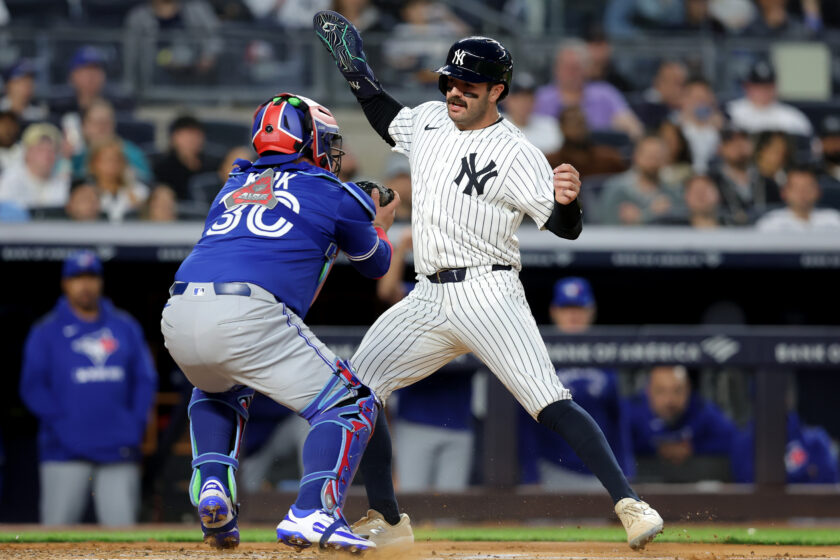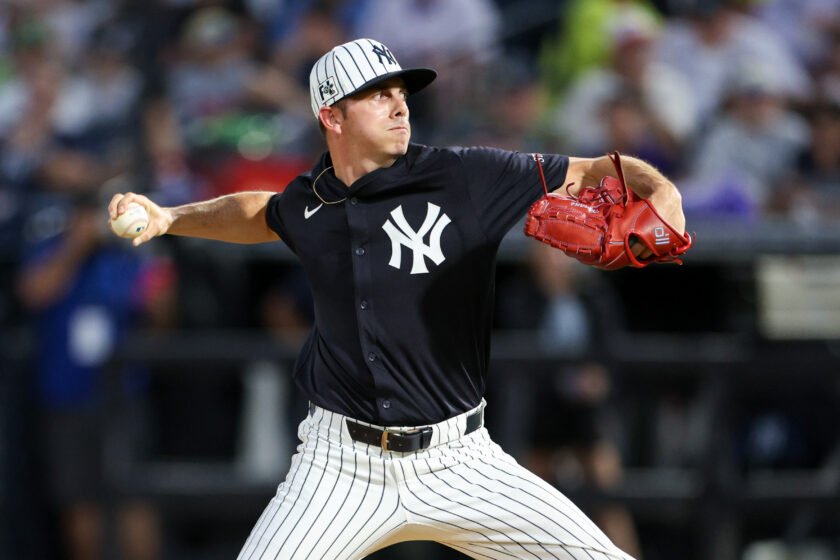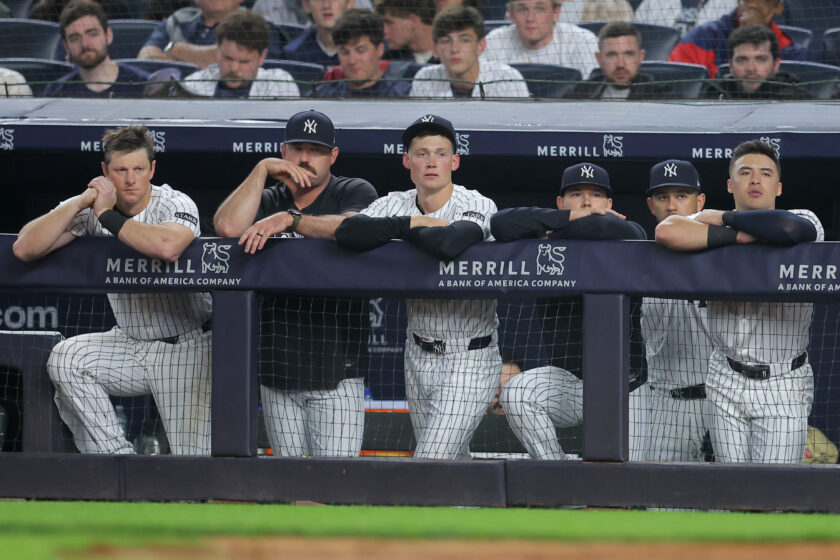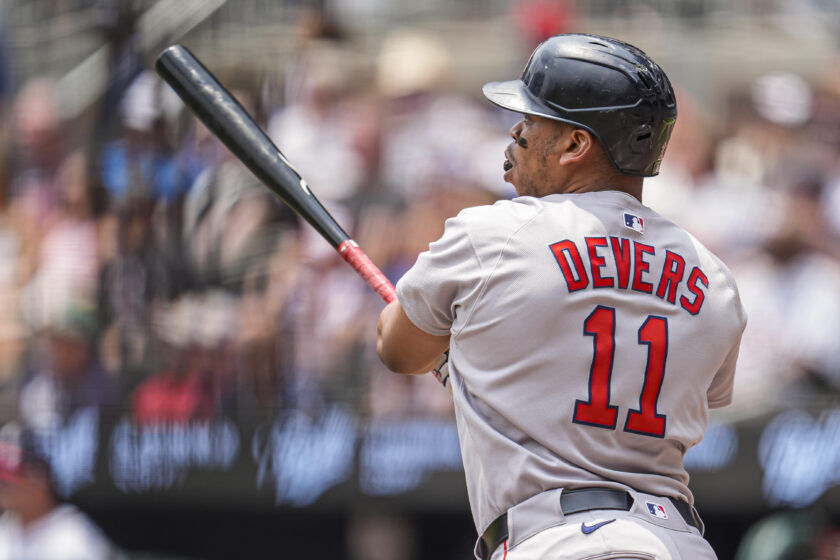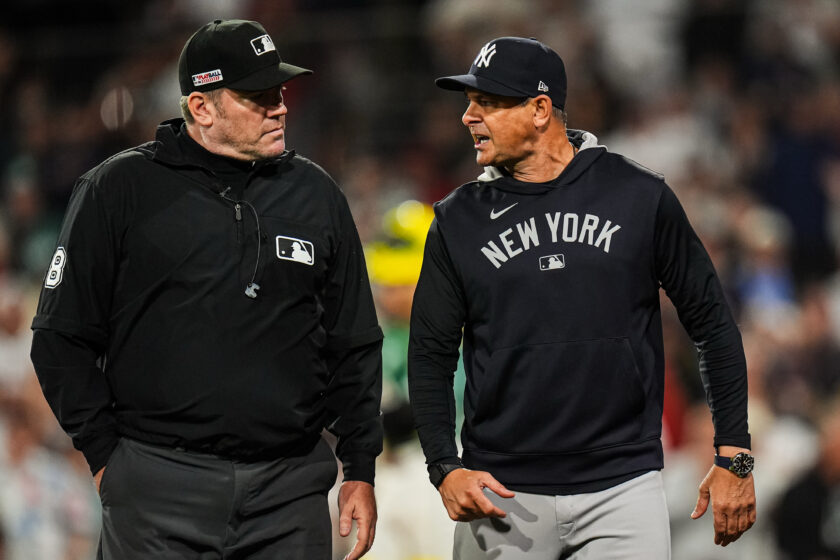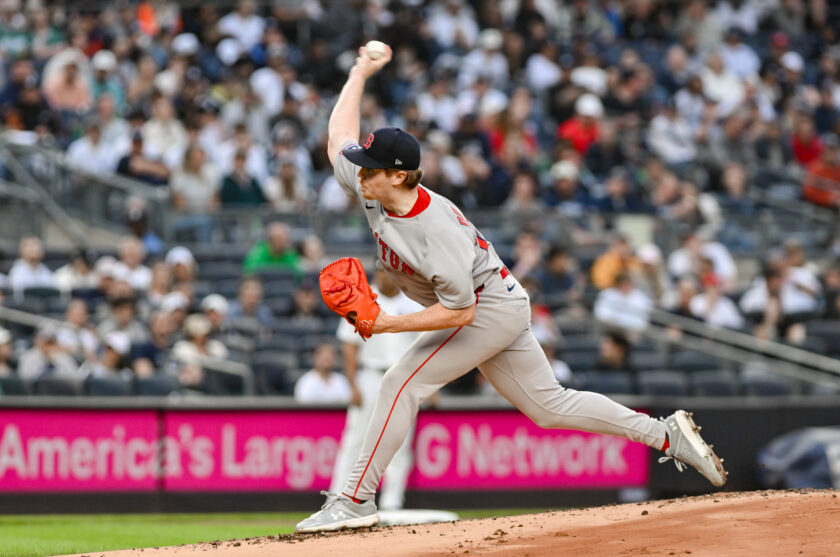MLB Playoffs: Can the New York Yankees beat the Tampa Bay Rays?
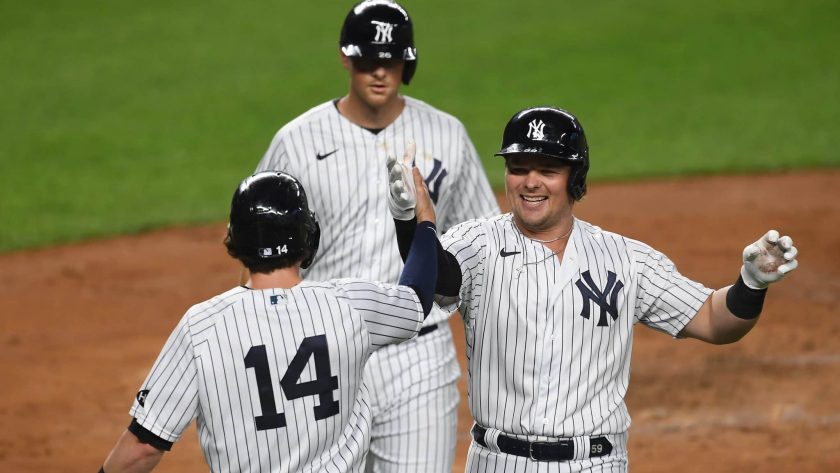
The Tampa Bay Rays blew out the New York Yankees in the season series this year, but that might not matter in the playoffs.
[sc name=”josh-benjamin-banner” ]If playoff odds were based on results alone, the New York Yankees wouldn’t like their chances against the Tampa Bay Rays.
The two AL East rivals face off in the Division Series starting Monday night. The Rays won 40 games en route to securing the No. 1 seed in the American League. The Yankees entered the abbreviated season as World Series favorites, but a pair of late season slumps meant they stumbled to the No. 5 seed.
What’s happened in the playoffs thus far might not matter either. The Rays made short work of the No. 8 Toronto Blue Jays while the Yankees upset the No. 4 Cleveland Indians. Regardless of those results, Tampa Bay still took eight of ten matchups against New York this year. Given that, one would assume the Rays would be overwhelming favorites.
Except they’re not. The New York Yankees and their fully loaded lineup are currently the favorites, and with good reason.
In the playoffs, the Yankees have a long history of dispatching opponents who had their number in the regular season. Let’s take a trip down memory lane and revisit those postseason series.
Kansas City Royals: 1978 ALCS

Before the Boston Red Sox rebirth in the early 2000s, the New York Yankees’ greatest playoff rival was the Kansas City Royals. Remember, this was in the 1970s when the postseason was still in its infancy, and divisional play meant rivalries were born quickly.
In this case, Kansas City was the perfect rival. Led by Hall of Famer George Brett, their scrappy small-ball style clashed perfectly with New York’s star power. The Yankees already dispatched KC in ’76 and ’77, so why would ’78 be any different?
Well, it was. The season was a complete soap opera between Reggie Jackson and manager Billy Martin, who resigned midseason. Bob Lemon took over as the Yankees overcame being 14 games back from the first-place Red Sox, and Bucky Dent’s home run in a one-game playoff meant another matchup with Kansas City. The Royals, meanwhile, had just edged the Yankees 6-5 in the season series.
Both teams split the first two games at Royals Stadium before returning to New York. Game 3 was a back-and-forth game where the Yankees had a 4-3 lead before Goose Gossage blew the save in the eighth inning. Thankfully, Thurman Munson hit a two-run shot to put New York back in the lead and eventually win 6-5. Ron Guidry then won a 2-1 pitcher’s duel in Game 4 and Gossage redeemed himself with the save.
New York then won its second straight World Series over the Los Angeles Dodgers. It just goes to show that when a team has momentum, it can beat even the most aggressive and pesky of teams.
Texas Rangers: 1996 ALDS

If you were a New York Yankees fan in 1996, the World Series wasn’t just a dream. It was almost a birthright. The way the team played all year long just provided some sense of security. No matter what happened, the Bronx Bombers would win the AL pennant and then the World Series.
Well, the Texas Rangers quickly reminded New York the path through October isn’t an easy one. Led by MVP Juan Gonzalez, Texas tied for fifth in the majors with 928 runs scored. It didn’t matter the Rangers’ pitching had a staff ERA of 4.65. The bats were good enough to make up for it, and Texas beat the Yankees 7-5 in the season series.
Game 1 proved it wasn’t a fluke as Texas relied on homers from Gonzalez and Dean Palmer in a 6-2 win. The Rangers also led 4-1 in Game 2 before the Yankees chipped away and won in extra innings. Little did everyone know that the Rangers’ unreliable bullpen would become a recurring theme.

Texas led 2-1 in the ninth inning of Game 3, but closer Mike Henneman couldn’t overcome two inherited runners and New York came back to win 3-2. The Rangers then led 4-0 in Game 4, but a pair of Bernie Williams home runs had other ideas. The Yankees won 6-4 and advanced to the ALCS.
It didn’t matter that they had to come back in every game. The New York Yankees simply wanted it more.
Boston Red Sox: 1999 ALCS

Those who assumed the New York Yankees would have a hangover after winning a record 125 total games in 1998 were wrong. The Bronx Bombers won 98 games and another AL East crown, but this time was different. The upstart Boston Red Sox had a Hall of Fame ace in Pedro Martinez and overcame a 2-0 deficit to upset Cleveland in the Division Series.
Here’s the twist. Boston was not an elite hitting team and was well behind the Yankees in every offensive category. In pitching, however, the two ranked fifth and sixth in staff ERA, and the Red Sox won the season series 8-4. No one was counting out the Yankees, but they weren’t sleeping on the Red Sox either.
Boston took an early 3-0 lead in Game 1, but Scott Brosius’ homer in the second inning made it 3-2. Brosius then scored the tying run on Derek Jeter’s RBI single in the seventh, and Williams walked it off with a home run in extra innings. The Yankees then won a hard-fought Game 2.

Martinez dominated as Boston won Game 3 in a blowout, but that’s all the Red Sox could enjoy. Game 4 was close as New York led 3-2 most of the way, but then exploded for six runs in the ninth inning. Game 5 was then a cakewalk as the Yankees won their second straight pennant and, subsequently, the World Series.
The Red Sox knew how to beat the New York Yankees that year, but just didn’t know how to account for playoff magic.
Seattle Mariners: 2000 ALCS

Nobody expected the 2000 New York Yankees to do anything. in the playoffs. Not only did the team win just 87 games to win the AL East, but New York finished the season on a 3-15 slide. Whatever momentum the Bronx Bombers had the previous two years had run out, and cracks in the foundation were starting to show.
The Yankees won a hard-fought ALDS against the Oakland Athletics in five games, but the determined Seattle Mariners awaited. They only managed the AL Wild Card berth despite ranking seventh in MLB in runs scored, but upset the Chicago White Sox in the first round. The Mariners also beat the Yankees in the season series 6-4, and had an elite slugger in Alex Rodriguez.

Game 1 set the tone as Seattle shut out New York 2-0 at Yankee Stadium. Game 2 looked like another low-scoring affair as the Mariners led 1-0 going into the eighth inning. The Yankees then broke a 21-inning scoreless streak to explode for seven runs and even the series.
New York then dominated Games 3 and 4, with Roger Clemens’ one-hit shutout in Game 4 owning the headlines. The Mariners won Game 5 to send the series back to New York, and cue the drama.

Seattle led 4-3 going into the bottom of the seventh inning and a decisive Game 7 seemed inevitable. But the New York Yankees weren’t done. Two runners reached with one out, and David Justice homered off of lefty Arthur Rhodes to start what would be a six-run outburst. New York held on to clinch the pennant for a third straight year, and then won the Subway Series.
Oakland A’s: 2001 ALDS

The 2001 New York Yankees should not have beaten this Oakland squad. To give a better idea of how good this team was, the A’s won 102 games in 2001 and had to settle for the AL Wild Card, and this was before the play-in game. Oakland also ranked fifth in runs scored and second in pitching with a staff ERA of 3.56. Surely, they would steamroll the aging Yankees after winning the season series 6-3?
The first two games implied a short series was coming. New York’s bats were no match for Mark Mulder in a 7-3 loss in Game 1. In Game 2, Tim Hudson held the bats in check as Oakland cruised to a 2-0 win and series lead before heading back home.
Game 3 saw the momentum swing towards New York. Jorge Posada’s home run was the sole offense in a 1-0 win, but the game was defined by Derek Jeter’s game-saving play known only as “The Flip.”

New York Yankees playoff magic took over from there. The team established momentum early in a 9-2 Game 4 win before heading back to New York for the decisive Game 5. Oakland took an early 2-0 lead, but the Yankees quickly rallied and David Justice’s solo shot in the sixth capped a 5-3 victory.
And yet, the Yankees weren’t done yet.
Seattle Mariners: 2001 ALCS

Nobody expected anything less than a World Series championship from the 2001 Seattle Mariners. They had the best pitching in baseball and ranked first in MLB with a 3.54 staff ERA. Their .288 team batting average ranked second in baseball, and they led with 927 runs scored.
Additionally, Seattle won 116 regular season games, breaking the 1998 Yankees’ recent record of 114. Japanese phenom Ichiro Suzuki was both AL Rookie of the Year and MVP. Oh, and did I mention the Mariners also lost Alex Rodriguez to free agency the previous offseason?
This wasn’t so much David vs. Goliath as it was King Kong vs. a family of spider monkeys from the Bronx Zoo. Seattle won the season series over the aging Yankees 6-3 and was the superior team on paper. All signs pointed to a quick ALCS with the Emerald City winning out.

Except the exact opposite happened. New York stole the first two games at Safeco Field by scoring early and outdueling the Mariners’ elite pitching. The Mariners remembered who they were by winning a 14-3 blowout at Yankee Stadium, and carried some of that momentum into Game 4.

This game was a scoreless tie until both teams exchanged one run each in the eighth inning. New York got a man on in the ninth inning, and rookie Alfonso Soriano hit a walk-off home run off closer Kaz Sasaki to give the Yankees a 3-1 series lead. The Yankees then won Game 5 in a blowout as the crowd chanted, “Overrated!” at Seattle.
Final thoughts
It just goes to show that in the playoffs, regular season performance means nothing. The team that can execute when it matters most does. The New York Yankees were exactly this team in beating Cleveland in the Wild Card round, coming through with timely hits and not forcing the action.
This is the baseball that must be played against the Tampa Bay Rays. Losing a season series 8-2 and then being asked to beat that same team in the postseason sounds like a tall order. In my own prediction, I even picked the Rays to win because of how unpredictably good their pitching is.
But despite that, the New York Yankees are still the better team on paper. If everything is running on all cylinders, they have what it takes to beat the Rays. They have plenty of times before and will again in the future.
And in the playoffs, the series we just revisited are proof positive of one key baseball truth.
In October, the regular season is meaningless.
Josh Benjamin has been a staff writer at ESNY since 2018. He has had opinions about everything, especially the Yankees and Knicks. He co-hosts the “Bleacher Creatures” podcast and is always looking for new pieces of sports history to uncover, usually with a Yankee Tavern chicken parm sub in hand.

